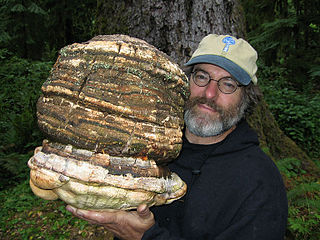A Quote by Edith Widder
If I go out in the open ocean environment, virtually anywhere in the world, and I drag a net from 3,000 feet to the surface, most of the animals - in fact, in many places, 80 to 90 percent of the animals that I bring up in that net - make light. This makes for some pretty spectacular light shows.
Related Quotes
There's a lot of animals in the open ocean - most of them that make light. And we have a pretty good idea, for most of them, why. They use it for finding food, for attracting mates, for defending against predators. But when you get down to the bottom of the ocean, that's where things get really strange.
Peeping through my keyhold I see within the range of only about 30 percent of the light that comes from the sun; the rest is infrared and some little ultraviolet, perfectly apparent to many animals, but invisible to me. A nightmare network of ganglia, charged and firing without my knowledge, cuts and splices what I see, editing it for my brain. Donald E. Carr points out that the sense impressions of one-celled animals are not edited for the brian: 'This is philosophically interesting in a rather mournful way, since it means that only the simplest animals perceive the universe as it is.
One of the dangers about net-net investing is that if you buy a net-net that begins to lose money your net-net goes down and your capacity to be able to make a profit becomes less secure. So the trick is not necessarily to predict what the earnings are going to be but to have a clear conviction that the company isn't going bust and that your margin of safety will remain intact over time.
Greek architecture taught me that the column is where the light is not, and the space between is where the light is. It is a matter of no-light, light, no-light, light. A column and a column brings light between them. To make a column which grows out of the wall and which makes its own rhythm of no-light, light, no-light, light: that is the marvel of the artist.
Some meat eaters defend meat eating by pointing out that it is natural: in the wild, animals eat one another. The animals that end up on our breakfast, lunch, and dinner plates, however, aren't those who normally eat other animals. The animals we exploit for food are not the lions and tigers and bears of the world. For the most part, we eat the gentle vegan animals. However, on today's farms, we actually force them to become meat eaters by making them eat feed containing the rendered remains of other animals, which they would never eat in the wild.
To see the universe as it is, you must step beyond the net [the matrix]. It is not hard to do so, as the net is full of holes. Look at the net and its many contradictions. You do and undo at every step. You want peace, love and happiness, and work hard to create pain, hatred and war. You want longevity and you overeat. You want friendship and you exploit. See your net as made of such contradictions and remove them - your very seeing them will make them go away.
































